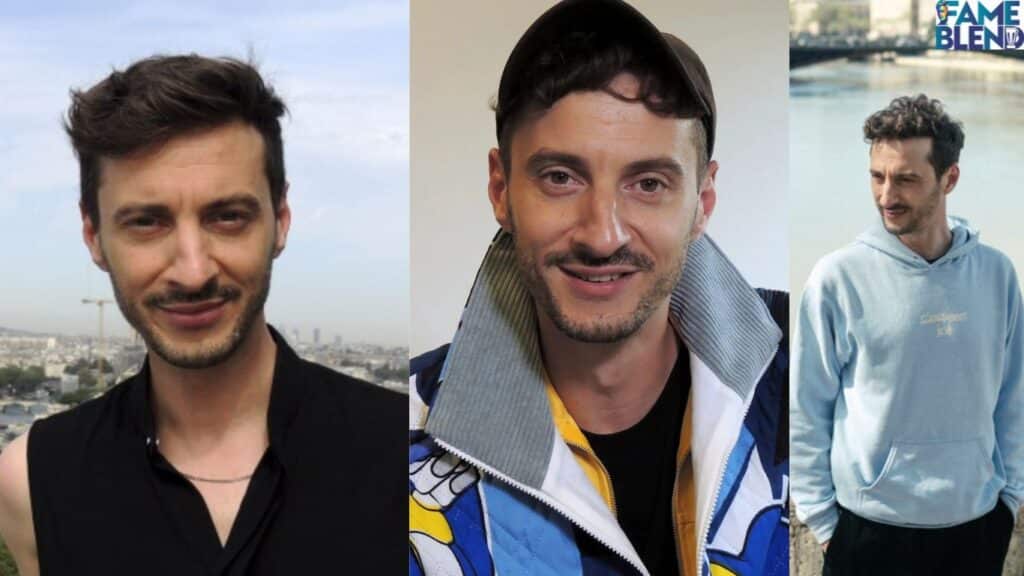Introduction:
Thomas Jolly, a prominent French actor and director, has become a household name in the world of theatre and is now set to make his mark on the global stage as the artistic director for the 2024 Summer Olympics opening ceremony in Paris. Luminary Directing Born on February 1, 1982, in Rouen, France, Jolly’s journey from a small-town theatre enthusiast to a nationally recognized artist is a testament to his talent, dedication, and innovative approach to the performing arts.
This comprehensive exploration of Thomas Jolly’s life, career, and artistic vision will delve into his ethnic background, cultural influences, and the impact he has made on French theatre. We’ll also examine how his unique perspective shapes his approach to the monumental task of directing the Olympic opening ceremony, and the controversies that have arisen along the way.
| Thomas Jolly | Quick Facts |
|---|---|
| Born | February 1, 1982 |
| Place of Birth | Rouen, France |
| Nationality | French |
| Occupation | Actor, Theatre Director |
| Notable Works | Henry VI trilogy, Richard III |
| Current Position | Artistic Director of Le Quai d’Angers (since 2022) |
| Major Appointment | Artistic Director for 2024 Paris Olympics Opening Ceremony |
| Education | University of Caen, Théâtre National de Bretagne |
| Theatre Company | Founder of La Piccola Familia (2010) |
| Awards | Molière Award for Best Director (2015) |
| Social Media | Instagram: @thomasjolly (131k followers) |
Thomas Jolly’s Personal Background
Thomas Jolly is a renowned French theater director known for his innovative productions and creative vision in the world of performing arts.
Early Life and Family
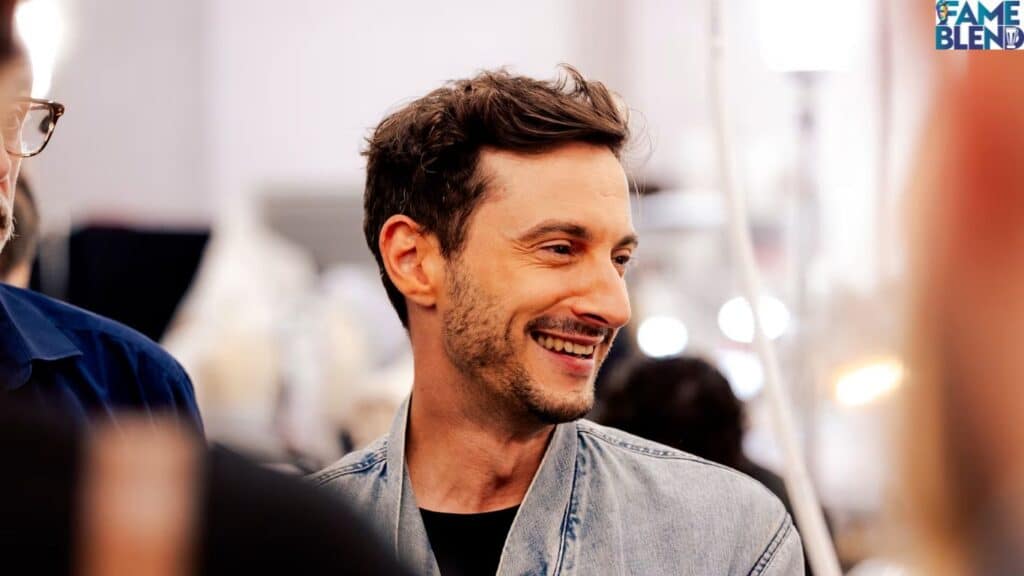
Thomas Jolly was born and raised in Rouen, a historic city in northern France known for its rich cultural heritage. His upbringing in this artistic environment likely played a significant role in shaping his future career. Jolly’s parents came from working-class backgrounds:
- Father: Worked as a printer
- Mother: Employed as a nurse
This modest upbringing may have influenced Jolly’s later artistic choices and his ability to connect with diverse audiences.
Educational Journey
Jolly’s passion for theatre began at a young age. Key milestones in his educational journey include:
- 1993: Joined a children’s theater company at age 11
- Early 2000s: Studied theatre at the University of Caen
- 2003: Enrolled at the prestigious Théâtre National de Bretagne in Rennes
During his time at the University of Caen, Jolly immersed himself in theatre studies, laying the foundation for his future career. Luminary Directing His formal training at the Théâtre National de Bretagne further honed his skills and provided him with valuable connections in the French theatre world.
French Heritage and Cultural Identity
Thomas Jolly is proudly French, with his work deeply rooted in the country’s rich theatrical tradition. His upbringing in Rouen, a city steeped in history and culture, has undoubtedly influenced his artistic sensibilities.
Regional Influences
Rouen, located in the Normandy region, is known for:
- Its Gothic architecture, including the famous Rouen Cathedral
- A strong literary tradition, being the birthplace of writers like Gustave Flaubert
- A vibrant arts scene, with numerous theatres and cultural events
These elements of Rouen’s cultural landscape likely played a role in shaping Jolly’s artistic vision and his approach to staging theatrical productions.
Cultural Identity in Artistic Work
Jolly’s French identity is evident in his choice of projects and artistic direction. Some examples include:
- His ambitious staging of Shakespeare’s Henry VI trilogy, which he adapted and presented with a distinctly French flair
- His work on French operas, including Gounod’s “Faust” at the Opéra Comique in Paris
- His appointment as artistic director of the Quai d’Angers, a major cultural institution in France
While Jolly’s work often draws from international sources, his interpretations are firmly grounded in French theatrical traditions and contemporary French culture.
Ethnic Ancestry and Speculation
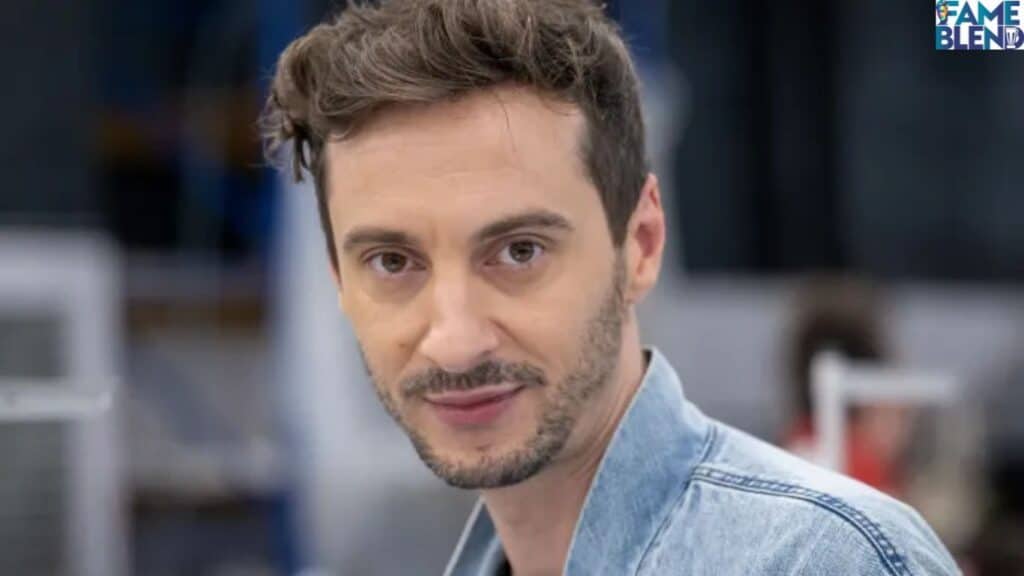
While Thomas Jolly is undoubtedly French, there has been some speculation about his ethnic ancestry. It’s important to note that Jolly himself has not publicly discussed his ethnic background beyond his French nationality.
Some unverified claims suggest that Jolly may have Jewish ancestry. However, without confirmation from Jolly or reliable sources, this remains speculation. It’s crucial to approach such claims with caution and respect for Jolly’s privacy.
Religious and Cultural Influences
Luminary Directing Although Jolly’s current religious beliefs are not publicly known, he has spoken about his exposure to Christianity during his upbringing. In interviews, he has mentioned:
- Attending catechism classes as a child, influenced by his grandfather
- Drawing inspiration from religious imagery and themes in his work, such as his controversial recreation of The Last Supper in a theatrical production
These experiences seem to have informed his artistic choices, even if he doesn’t publicly align with a particular faith.
Thomas Jolly’s Theatrical Career
Thomas Jolly’s career in theatre has been marked by bold artistic choices and a rapid rise to prominence. Here’s a timeline of his major career milestones:
| Year | Achievement |
|---|---|
| 2004-2005 | Directorial debut with “Arlequin poli par l’amour” by Marivaux |
| 2010 | Founded La Piccola Familia theatre company |
| 2012-2016 | Staged the ambitious Henry VI cycle |
| 2015 | Directed Richard III at the Avignon Festival |
| 2016 | Opera directorial debut with “Eliogabalo” at the Paris Opera |
| 2020 | Directed “Thyeste” at the Comédie-Française |
| 2022 | Appointed artistic director of the Quai d’Angers |
| 2023 | Selected as artistic director for the 2024 Olympics opening ceremony |
Breakthrough with Shakespeare
Jolly’s most significant early success came with his ambitious staging of Shakespeare’s Henry VI trilogy. This production, which ran for 18 hours in its complete form, showcased Jolly’s innovative approach to classic texts and his ability to engage audiences with marathon theatrical experiences.
“”I wanted to create a theatrical event that would be both a challenge and a celebration,” Jolly said of the Henry VI project. “It’s about immersing the audience in a world and a story that unfolds over time.”
The success of this production catapulted Jolly to national prominence and established him as a daring and visionary director.
Expanding Horizons: Opera and Beyond
Following his success in theatre, Jolly expanded his repertoire to include opera direction. His 2016 production of “Eliogabalo” at the Paris Opera demonstrated his ability to bring his innovative theatrical approach to the operatic stage.
Jolly has also ventured into film and television, including:
- Directing a film adaptation of Romeo and Juliet for France Télévisions in 2019
- Acting roles in several French films and TV series
These diverse projects showcase Jolly’s versatility as an artist and his ability to work across different media.
Cultural Identity in Jolly’s Artistic Work
Thomas Jolly’s work often explores themes of identity, power, and social dynamics. His productions are known for their:
- Bold visual aesthetics: Incorporating modern design elements into classic texts
- Innovative use of technology: Integrating video projections and soundscapes
- Engagement with contemporary issues: Addressing themes of politics and social justice through historical texts
Jolly’s approach to casting and representation has also been noted for its inclusivity, often featuring diverse casts that reflect contemporary French society.
Public Statements on Identity and the Arts
While Thomas Jolly has not extensively discussed his personal ethnic identity in public, he has been vocal about the importance of diversity and representation in the arts. Some key points from his public statements include:
- Advocacy for more diverse voices in French theatre
- Support for emerging artists from various backgrounds
- Commitment to addressing contemporary social issues through classic texts
In a 2019 interview with Le Monde, Jolly stated:
“Theatre must reflect the world we live in. It’s not just about preserving tradition, but about creating a dialogue between the past and the present, and between different cultures and experiences.”
Impact on French Theatre
Thomas Jolly’s influence on French theatre has been significant, particularly in terms of:
- Revitalizing classic texts: His innovative approaches to Shakespeare and other canonical writers have breathed new life into these works for contemporary audiences.
- Promoting accessibility: Jolly’s productions often aim to make theatre more accessible to younger and more diverse audiences.
- Bridging traditional and contemporary forms: His work blends classical theatre techniques with modern technology and storytelling methods.
- Elevating the role of the director: Jolly’s high-profile projects have highlighted the creative role of the theatre director in France.
Comparisons with Other French Theatre Directors
While Jolly is part of a new generation of French theatre directors, his work is often compared to established figures such as:
- Ariane Mnouchkine: Known for her innovative, multicultural productions
- Olivier Py: Former director of the Avignon Festival, known for his politically engaged work
- Stanislas Nordey: Director of the Théâtre National de Strasbourg, known for his focus on contemporary playwrights
Jolly’s unique contribution lies in his ability to make classical texts feel urgently relevant to contemporary audiences while maintaining a sense of spectacle and theatricality.
The 2024 Olympics Opening Ceremony: A New Challenge
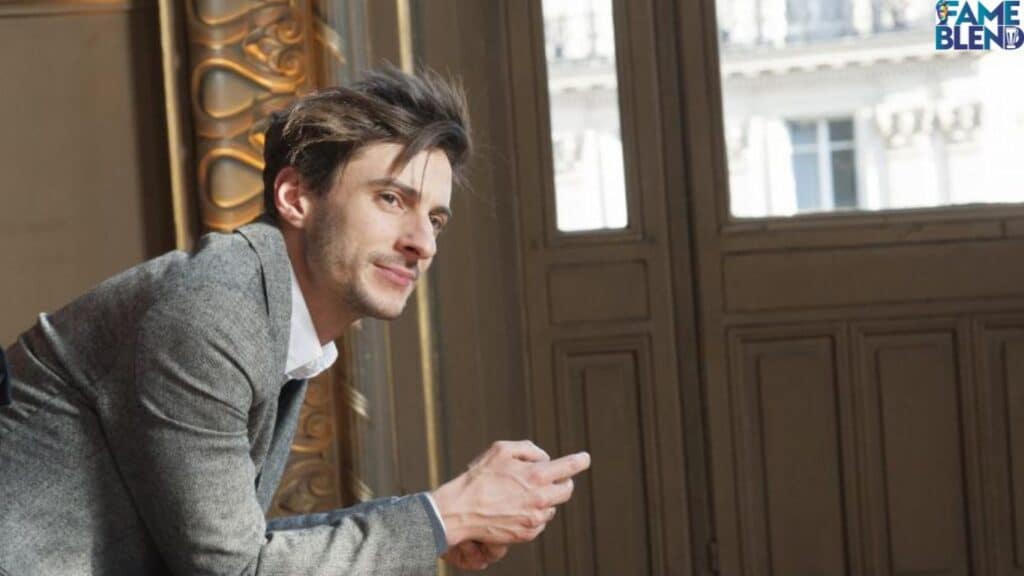
Luminary Directing In September 2023, Thomas Jolly was announced as the artistic director for the opening ceremony of the 2024 Paris Olympics. Luminary Directing high-profile appointment represents a significant milestone in Jolly’s career and a recognition of his status as one of France’s leading artistic voices.
Vision for the Ceremony
While specific details of the ceremony are still under wraps, Jolly has hinted at some of his goals:
- Showcasing the diversity of French culture and its global influences
- Incorporating innovative technologies and staging techniques
- Creating a ceremony that is both spectacular and meaningful
“The Olympic opening ceremony is a unique opportunity to tell a story about France, about sport, and about our shared humanity,” Jolly stated in a press conference. “I want to create a moment that will be remembered not just for its spectacle, but for its ability to move and inspire people.”
Controversies and Challenges
The appointment of Jolly as artistic director has not been without controversy. Some of the challenges and criticisms he faces include:
- Concerns about representation: Questions have been raised about the inclusion of LGBTQ+ personalities in the ceremony, given France’s complex relationship with LGBTQ+ rights.
- Religious sensitivities: Jolly’s past use of religious imagery, such as The Last Supper recreation in a previous production, has led to concerns about potential controversies in the Olympic context.
- Balancing tradition and innovation: The challenge of creating a ceremony that respects Olympic traditions while pushing creative boundaries.
- Logistical complexities: Coordinating a massive live event with multiple stakeholders and technical requirements.
Recent Work and Future Projects
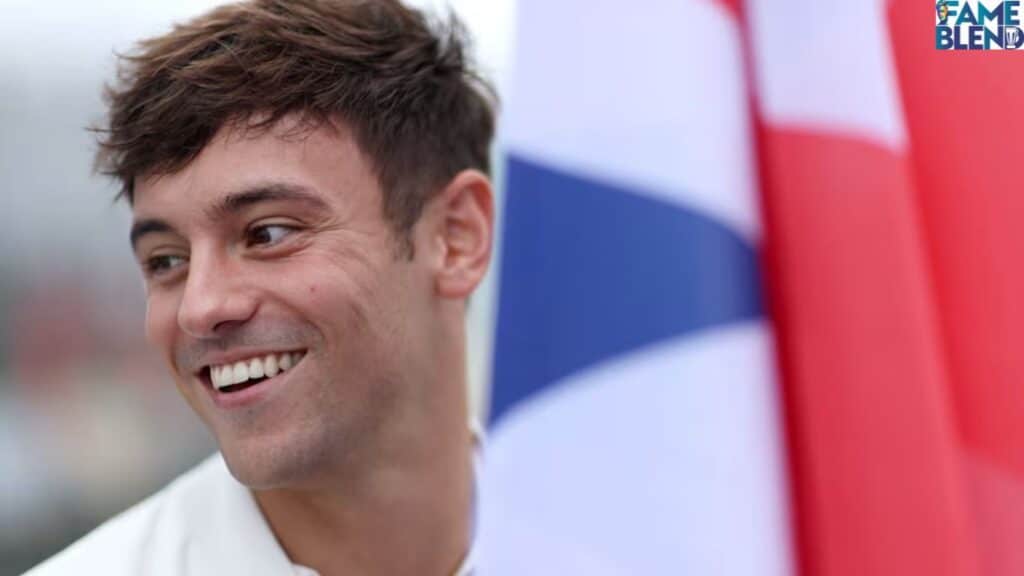
Despite the demands of preparing for the Olympics, Thomas Jolly continues to be actively involved in other theatrical projects. Some of his recent and upcoming work includes:
- Directing a new production of Molière’s “Dom Juan” at the Comédie-Française (2023)
- Developing a new theatrical adaptation of Victor Hugo’s “Notre-Dame de Paris”
- Continuing his role as artistic director of the Quai d’Angers, where he is focusing on developing new talent and experimental productions
Focus on Emerging Artists
One of Jolly’s priorities in his current role at the Quai d’Angers is nurturing the next generation of theatre artists. He has initiated several programs aimed at:
- Providing opportunities for young directors and playwrights
- Encouraging cross-disciplinary collaborations between theatre and other art forms
- Developing educational outreach programs to engage young audiences with theatre
Conclusion: Thomas Jolly’s Lasting Impact on French Theatre
Thomas Jolly’s journey from a young theatre enthusiast in Rouen to the artistic director of the Olympic opening ceremony is a testament to his talent, vision, and ability to connect with audiences. His work has breathed new life into classical texts, pushed the boundaries of theatrical presentation, and helped to make theatre more accessible and relevant to contemporary audiences.
Luminary Directing While questions about his specific ethnic background remain largely unanswered, Jolly’s impact on French culture is undeniable. His commitment to diversity, innovation, and artistic excellence has established him as a leading figure in French theatre and a cultural ambassador on the global stage.
As he prepares for the monumental task of directing the 2024 Olympics opening ceremony, Luminary Directing Thomas Jolly stands at the intersection of tradition and innovation, poised to showcase French culture and creativity to the world. His journey serves as an inspiration to aspiring artists and a reminder of the power of theatre to unite, challenge, and inspire audiences across cultural boundaries.

